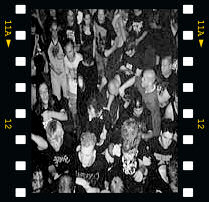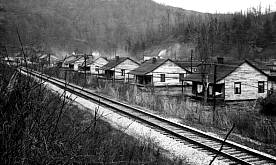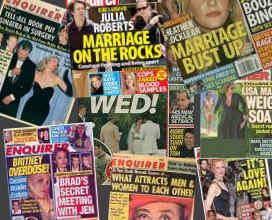
I loved the early days of the punk/new wave era.
From the moment I cut my hair at the end of the summer in 1973, I’d felt something was coming. Where long hair had once been a sign that the person under it might be nice or might be weird or crazy — but at least they’d be interesting — it had by then become a badge of mindless conformity.
Then, one day in late 1974 or maybe ’75, I heard an advance copy of Patty Smith’s harrowing story of a school hallway murder, Horses. It was electrifying: a visceral, stream of consciousness puzzle, shattered images of a sudden violent crime seen from the vicitim’s point of view, weaving The Land of a Thousand Dances into the ending with deadpan irony.
Music like that was hard to come at the time. We waited. We hung on rumors. A single. A poem printed in a minor magazine. In time a few more bands emerged, Television, some quirky bands in LA. And then, the Sex Pistols. Bam. A badly recorded single. Another. And a name for it all that had been hanging around as a rock crit term for at least a few years, usually reserved for post-hippie bands like Iggy and the Stooges: punk rock.
I bought my first electric guitar and amp ($20 and $15 respectively from the pastor of a church near the gas station I was working at) the week the Sex Pistols album came out on import in the US. I brought the amp home the same day a buddy and I picked up the import. After listening to the album all the way through — loud — I turned the guitar and amp up all the way and achieved a level of freedom and exultation I’ve rarely known and never recaptured in the same way. The sheer exultation of pure, raw, noise. A great feeling. Everyone should do it once.
Flash forward a few years and I have a punk band called Machine Dog. I’m going to every punk or no wave show I can get to in LA. Only a year or so before, in 1979, I’d declared punk rock officially dead — reminding my friends that the hippies had held a none-too-celebretory ceremony called The Funeral for the Hippie in 1968, just a year after the fabled Summer of Love. And, as I pointed out to my younger punk rock pals — they were pretty much smack on. From there on out it was the downhill slide to flower decals and polyester flares.
In ’79 it was feeling grim. Venues were disappearing. The 50 core punks and the maybe 150 or so sympathizers that comprised the regular audience (we’d see each other everywhere) were dispirited.
And then something odd happened. New people showed up out of nowhere. A lot of them still had long hair but within months it was typically cut off to a mohawk or buzz. The pogo pit was quickly taken over by jocks and surfers turned punk. The LA Times christened the new, super-agro moshing favored by the newcomers as The Slam, aka slam dancing.
Shows that would have drawn 50 people in ’78 or ’79 were suddenly drawing hundreds — and drawing the less-than-amused attention of the cops, as well. The punk paradigm had shifted and a lot of the original punks and fellow travelers had moved on. Where a few years before you rarely saw someone at a show you hadn’t seen before — by 1980 and ’81, it was becoming unusual to see a familiar face.
At that point I realized that I’d watched the same thing happen in the discotheque scene from around ’74 and ’75 — there was a burst of wildness and a sense of freedom — and then the scene seemed to all but die by ’76. When I heard there was a movie set in the disco milieu due for release in 1978 all I could think was — wow, how could your timing be so bad. Disco’s are dead.
Uh huh.
A decade later, I’d watch — this time from a safe distance — as house/rave culture in Europe and grunge in America would go through a similar germination and blossom cycle.
But, of course, what was really happening was parallel to the beats, the hippies, any hipster scene. For a few golden moments, an enthusiastic culture of creativity, experimentation, and exploration grows in pockets/geodemographic nodules, cross pollinating with others. But bright lights burn quickly. Relentlessly creative, restless types get bored, die, evolve, move on… but usually not without leaving behind the spores of that subculture that take root once again.
And it is usually that second wave that “puts it on the map,” economically and demographically. I used to call it the K-Mart Phase of Cultural Paradigm Shift. Today, of course, we’d have to change that to Walmart.
But you get the idea.
The Slam
previous versions
Wednesday, January 11, 2006
lyrics
The Slam
Went to the whiskey just the other night
did a little dance that I learned in the Times
Beach punk made a grab for my date
smashed by beer bottle right in his face
La La La La La La
Aint it great how the media
regulate your culture — tell you just who you are
10,000 kids and they just found themselves
cause they saw the punk report on the Evening News
La La La La La La
They threw me out on my face but that didn’t phase me
cause The Dance is Art and Art ain’t free
Well, I’m proud to be a Punk and I proved that’s true
when I pogo’ed through the window of the Emergency Room
La La La La La La
Fall 1980
(C)2007, TK Major




